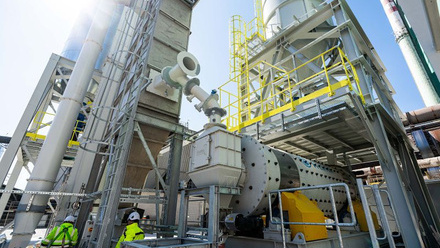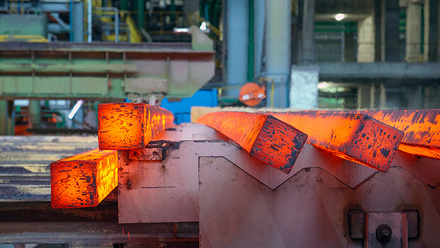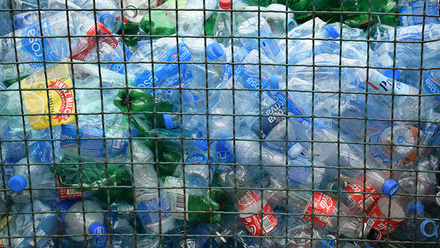Sky-high aspirations for sustainable aviation
The recent Airbus Summit was clear that sustainable aviation would not come from one silver bullet, but needs multiple forces to propel it forward.

'Aviation is in its fourth revolution. After mastering flight, ensuring its safety and making air travel accessible, the next frontier for aviation is decarbonisation,' postulated Airbus in its briefing ahead of the company’s recent summit on the future of sustainable aviation.
Julie Kitcher, Chief Sustainability Officer and Communications at Airbus, stated boldly all Airbus aircraft are already certified to fly with up to 50% sustainable aviation fuel (SAF). This has the potential to reduce lifecycle CO₂e emissions by up to 80% on average for their Scope 3 emissions, claims the company.
The next generation of Airbus aircraft are pledged to fly with a blend of up to 100% SAF.
But Chief Operating Officer Vanessa Hudson was clear that to continue this trajectory, government has an important role to play in driving demand and supply. Kitcher pointed to a 'chicken and egg situation' because SAF is three-to-five times the price of kerosene.
She described the alcohol-to-jet-fuel SAF innovation as 'promising' and noted mixed-blend SAF can be developed at scale without needing new refineries, but there is still a 'green premium'.
There needs to be a 'convergence of innovation and capital', she said. 'This is an opportunity to develop a new industry.'
Ilona Sitova, Vice Chair of FABEC SC ESO MUAC, asserted, 'We are not policymakers…We do our best to share our knowledge.' She saw a need for those in government to take a leap of faith. She believes if policymakers set the pace, then industry will find ways of keeping up. 'We do need someone to set the pace here and say, guys, get this done.'
Hudson added, 'I think the consumer of the future is going to make choices based on sustainability.'
Jimmy Samartzis, Chief Executive Officer of LanzaJet, believed there is a 'need [for] scalability, supportive policy and risk-happy capital'. Although he is encouraged by what he sees, he still felt things are moving too slow. Asserting, 'someday is now'.
Booking a ticket
In a step towards scaling SAF adoption, Airbus is testing a ‘book and claim’ approach to boost supply and demand within the sector. The system allows a buyer to ‘book’ a certain amount of SAF and claim the corresponding emission reduction, even if the fuel is used elsewhere.
Through a pilot programme running throughout 2025, Airbus seeks to improve SAF accessibility for potential customers, particularly those with limited volumes and far from supply points.
The first memorandum of understanding was signed by SMBC Aviation Capital, followed by AerCap, Comlux, Luxaviation, Novespace, Rive Private Investment and SAF Aerogroup.
Airbus will purchase SAF certificates and manage the associated sustainability attributes through the registry of the Roundtable on Sustainable Biomaterials (RSB), a recognised sustainability certification body. These certificates will then be resold to interested customers, such as aircraft operators, thereby stimulating short-term demand for SAF.
Elena Schmidt, Executive Director at RSB, believes ‘book and claim’ makes SAF more affordable and accountable.
While Julia Fidler, in charge of environmental sustainability, carbon reduction, fuels and materials decarbonisation at Microsoft, suggested the ‘book and claim’ system will enable long-term contracts to be signed for SAF.
Julien Manhes, Airbus Head of Sustainable Aviation Fuel and Carbon Dioxide Removals, added, 'Supporting the SAF ‘book and claim’ mechanism is an immediate solution contributing to the emergence and scale-up of the global SAF market.
'For a lot of smaller operators, getting access to SAF can be challenging depending on the amount of SAF needed. Through this initiative, Airbus can simplify and derisk the process for operators and SAF suppliers, by financially securing SAF certificates upfront and sharing them when customers need them.
'This is also a great opportunity to demonstrate ‘book and claim’ is reliable and its usage should be extended in voluntary and regulatory markets.'
Gabrielle Walker, Co-Founder and Chief Scientist at CUR8, a platform that helps global companies buy and manage carbon removals, asserted there is 'massive capacity for development in all parts of the world. Don’t forget how expensive it is to do nothing.'
Counteracting contrails
Mark Bentall, Head of Research and Technology at Airbus, shed light on another milestone for the firm in assessing contrail formation and the impact of fuel composition on particle emissions.
There are flights with atmospheric payloads on board, but these cannot measure what is left in the air once the aeroplane has landed, causing uncertainty about impact.
Steven Barrett, Regius Professor of Engineering at Cambridge University, asserted, 'This is not the Manhattan project.'
Airbus, within a consortium of 10 partners from four European countries, has launched PACIFIC (Particle emissions, air quality and climate impact related to fuel composition and engine cycle) to study the aviation sector’s non-CO₂ emissions with a focus on contrails. The results will support future fuel specifications and policy recommendations.
Recent studies suggest the use of SAFs could reduce both soot particles and contrail ice crystals. However, additional information on fuel composition and its processing in the engine is necessary to better understand the effects and benefits of SAFs.
The project will test a range of fuels under controlled conditions, with consistency in combustion parameters and hardware. Lab-scale experiments at the German Aerospace Center will extend to full-aircraft engine tests at Airbus Toulouse in France.
The research will focus on understanding how soot forms during fuel combustion, using improved prediction tools to better anticipate its presence in engine emissions.
It will also analyse the quantity of fine particles released at different engine power levels, refining methods to estimate their impact from ground tests to real flight conditions.
Another key aspect is assessing how these particles contribute to ice crystal formation, a major factor in contrail development, using advanced measurement techniques.
Finally, the project will evaluate the broader climate effects of these emissions by examining how different fuel compositions and engine settings influence contrail formation and properties, and their impact on global warming.
The Hydrogen Blue Condor experiment is now being analysed. Results are anticipated for the fourth quarter of the year.
Barrett noted, 'We have a strong research base for a generation of research', but he encouraged action rather than burying their heads in the sand. Barrett shared how the current data suggests contrail elimination will mitigate about 2% of global warming. Adding that even if this is wrong and the benefit is small, it might be worth the risk.
However, changing one flight path to mitigate contrail impact has a ricochet effect, so it is not a simple process and may create a safety and capacity issue.
While ironically, the summit highlighted how older, less-efficient aircraft create more heat and, conversely, fewer contrails, so more efficient aircraft will necessitate contrail-avoidance mechanisms. Further research will enable the industry to respond on a tactical basis.
A foldable flight future
Sue Partridge, Airbus Commercial Aircraft UK Country Manager and Head of its Wing of Tomorrow Programme, highlighted the need for wing designs to be longer and slenderer for improved performance, but this had been constrained by gate size. She revealed Airbus was designing foldable wings.
Airbus is also proposing advances in propulsion. It is working with CFM International on the Revolutionary Innovation for Sustainable Engines (RISE) open-fan engine demonstrator, which aims to show how this technology could reduce fuel consumption and CO₂ emissions by 20% compared to today’s most efficient single-aisle engines. Airbus plans to flight test RISE on its A380 aircraft by the end of the decade.
They are also working on advancing hybrid-electric propulsion, which supplements conventional jet fuel or SAF with electricity from batteries or fuel cells.
The EcoPulse demonstrator, a joint project between Airbus, Daher and Safran, gave significant insight into the use of lithium-ion batteries onboard an aircraft with a high-voltage network. While the potential of solid-state batteries is also being explored.
High hopes for hydrogen
Airbus reconfirmed its commitment to bring to market a commercially viable hydrogen aircraft. It presented some of the key technology building blocks at the summit that will enable the advent of a fully electric, fuel-cell powered, commercial aircraft – a pathway they say stands out as the most promising, following years of research into hydrogen aviation.
Airbus Head of Future Programmes, Bruno Fichefeux, said, 'While we’ve adjusted our roadmap, our dedication to hydrogen-powered flight is unwavering. Just as we saw in the automotive sector, fully electric aircraft powered by hydrogen fuel cells have the potential in the longer term to revolutionise air transport for the better, complementing the SAF pathway.'
These technologies were showcased as part of a new, notional concept of a hydrogen aircraft powered by four, 2MW, electric-propulsion engines, each driven by a fuel cell system that converts hydrogen and oxygen into electrical energy. The four fuel-cell systems would be supplied via two liquid hydrogen tanks.
Airbus Head of the ZEROe Project, Glenn Llewellyn, added, 'Over the last five years, we have explored multiple hydrogen-propulsion concepts, before down-selecting this fully electric concept.
'We are confident it could provide the necessary power density for a hydrogen-powered commercial aircraft and could evolve as we mature the technology. In the coming years, we will concentrate on advancing the storage, distribution and propulsion systems, while also advocating for the regulatory framework needed to ensure these aircraft can take flight.'
In 2023, Airbus successfully demonstrated a 1.2MW hydrogen-propulsion system, and in 2024, end-to-end testing of an integrated fuel-cell stack, electric motors, gearboxes, inverters and heat exchangers was completed.
To address liquid hydrogen handling and distribution challenges in flight, Airbus, in collaboration with Air Liquide Advanced Technologies, has developed the Liquid Hydrogen BreadBoard in Grenoble, France. Integrated ground testing is planned for 2027 at the Electric Aircraft System Test House in Munich, Germany, combining the propulsive bench and hydrogen distribution system for validation.
But Manhes reiterated these initiatives need driving forward with policy. And Walker asserted, 'If we don’t start now, it will not be there when we need it.'







